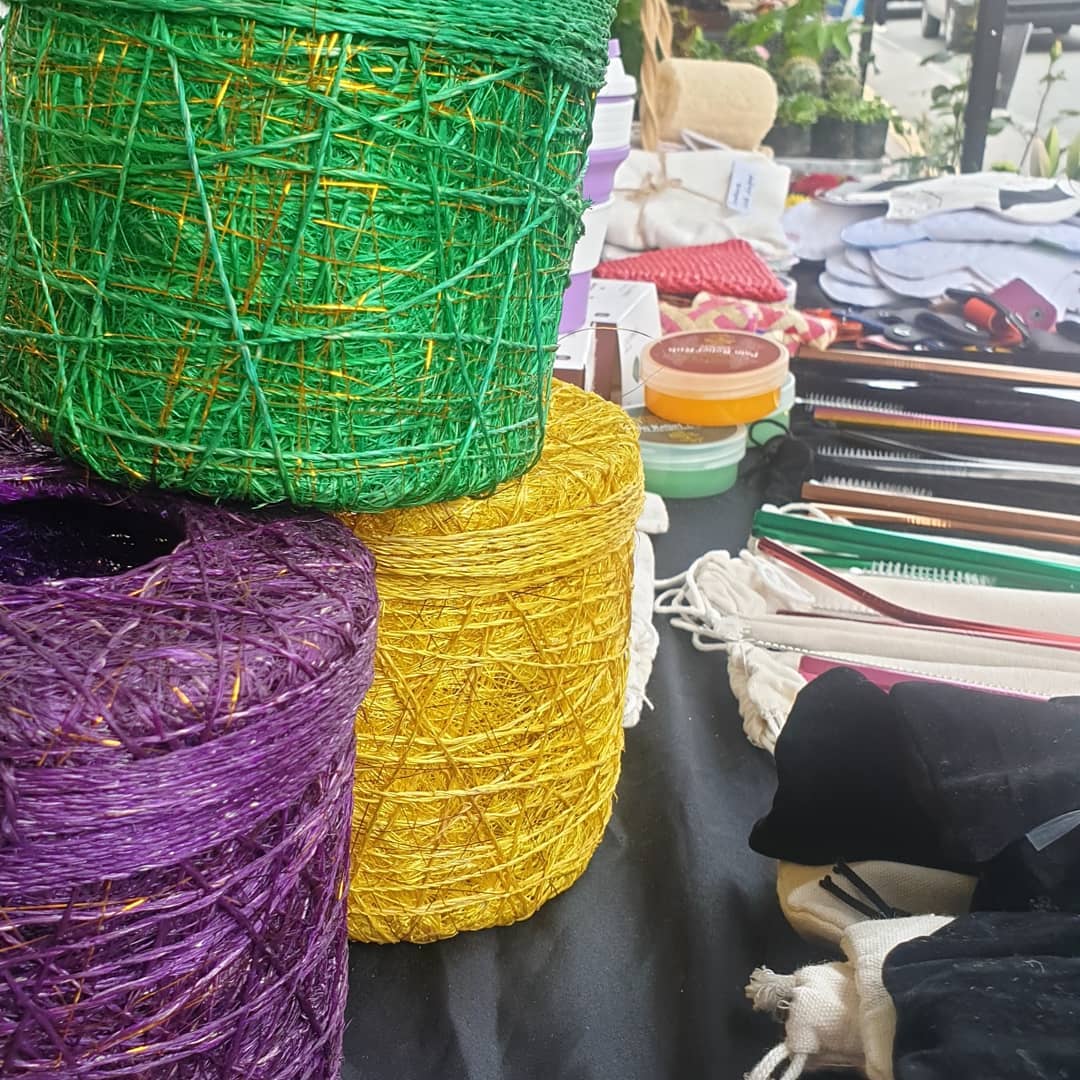by Salve Canale
If you know your way around Intramuros, Manila, you have probably come across a pop-up market near the Manila Cathedral on a weekend. That’s the Old Manila Eco Market (OMEM), a Zero Waste weekend market that showcases locally sourced products like fresh fruits and vegetables, food consumables, personal care products, and handicrafts.
It was a dream for Old Manila Eco Market founders Shine de Castro and Sheila Leyva to have a weekend market in Manila. They wanted to bring locals back to enjoying their own tourist attractions while experiencing a weekend market without having to endure the heavy traffic and travel for hours. They pitched the idea to the Intramuros Administration and since 2018, the pop-up store has been a constant part of the Walled City.

ZERO WASTE ALL THE WAY
As much as it is a business, the Old Manila Eco Market is also an initiative to promote eco-friendly lifestyles. As enthusiasts of pop-up stores, Shine and Sheila are fully aware that these spaces generate large amounts of waste, particularly disposables. So, it was a mutual decision to embrace Zero Waste from the beginning. That means strictly banning single-use plastics in all kinds of products, including ready-to-eat food, for their merchant partners. Thus, if a merchant applying to be a part of the weekend market cannot shift to reusable packaging, they tell them to reapply when they are ready to make the shift.
“It was challenging at the start,” Shine admitted. “Manilans are new to the concept of Zero Waste and a local weekend market.”
Shine said that most people are not even aware that shampoo bars and beeswax wraps existed. They are also very curious about how a refilling system works. People are also very surprised that locally and naturally made products can be purchased by anyone at relatively low prices. “We don’t have a lot of customers yet but we just keep on keeping on and continue to spread awareness about Zero Waste and local alternatives.”

MARKET DAY AND MORE
For Old Manila Eco Market, every market day is made special by every market goer who learns about Zero Waste through the products and services they are offering.
As Shine noted, being Zero Waste goes beyond substitution of packaging and creating awareness. That’s why they are determined to help their partners and consumers navigate the Zero Waste lifestyle not only by offering them -eco-friendly products but also by facilitating training sessions that promote sustainable lifestyle. Some of these training are on solid waste management, urban farming, bokashi composting, recycling/upcycling, DIYs, sustainability summit, and similar topics–offered at a minimal cost.
To give their partners more platforms to showcase their products, OMEM collaborates with other institutions and organize pop-up markets in malls and schools, and in organizations’ event venues. “We work with our beneficiaries to make them a Zero Waste community and empower them financially,” Shine said, adding that they often get invited by organizations to set up Zero Waste pop-up markets during events.

As with other businesses, OMEM also sometimes experiences difficulties. When things become difficult, Shine and Sheila would remind themselves of the reason why they started Old Manila Eco Market: to bring Zero Waste in one community at a time.
When the lockdowns were imposed in Metro Manila beginning March 2020, they were not able to organize green events and they had to temporarily stop operating their pop-up events, which was the main source of their income. Shine and Sheila used the time for reflection.
“We reflected on our business model, our plans for the coming years, and going back to basics,” Shine shared. Presently, they are giving training on growing food in their own community. “ The produce they grow will not not only provide food on their tables but could also be a source of additional income,” Shine said.
She added: “We are not just a store and we are not here just to sell products and services. We are building a community, not only of brands, but also of other movers and shakers working together to achieve a more sustainable lifestyle. All these while also promoting the local tourism industry.

___________________
This article is part of the book, BUSINESS UNUSUAL: Enterprises paving the way to Zero Waste, a collection of feature articles on select enterprises in Asia Pacific that practice and promote Zero Waste principles. Published by Global Alliance for Incinerator Alternatives, the publication may be downloaded for free at no-burn.org/business-unusual




























